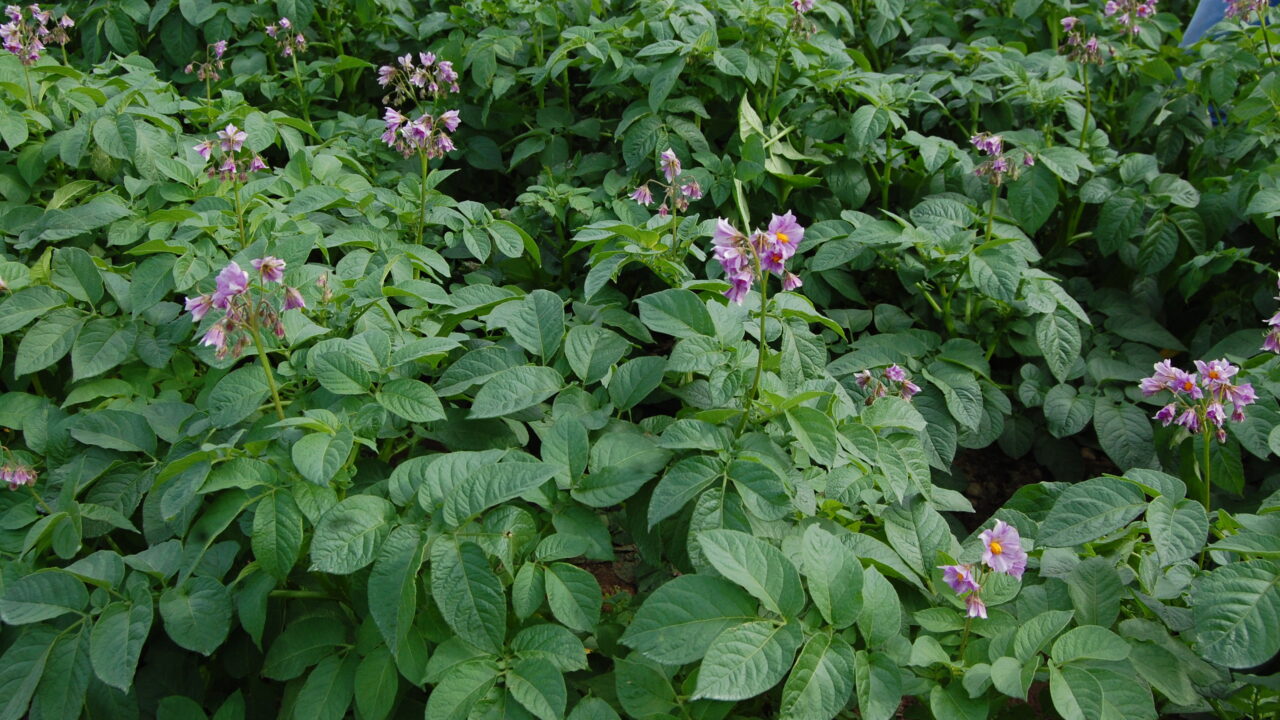Four varieties of British potato seed sent to Africa have performed strongly at three Kenyan trial sites, with yields similar to the UK.
The Agriculture and Horticulture Development Board (AHDB) and Science and Advice for Scottish Agriculture (SASA) have been working together to open the Kenyan market to GB seed.
A bilateral agreement was signed by the Scottish and Kenyan governments late in 2016.
The results
This resulted in well-known British varieties being exported to Kenya and planted in three different farms to assess the yield and quality, and the results speak for themselves.
While all four named varieties sent out to Kenya have grown well, Cara has been the standout performer with average yields across all three farms of over 50t/ha.
Hermes and Russet Burbank also grew well with an average yield of 41t/ha; while Atlantic brought up the rear with 35t/ha.
The yields achieved in Kenya closely mirror average yields in Britain – which tend to be around 46t/ha.
However, most farmers in Kenya are used to yields of around 10t/ha, as 95% use poor quality home saved seed rather than high quality imported seed.
High-health seed
The poor quality seed has been blamed for an endemic spread of diseases in the country. The Kenyan government is keen to approve new high-health seed varieties which will not only limit the spread of such diseases, but also improve yield.
The four varieties have now been planted for a second season and if they perform well once more they could be approved for export to Kenya.
Rob Burns, AHDB head of crop trade market development, said: “We are really pleased to see our seed performing so well in Kenya, although we’re not surprised. All these free varieties grow well in hotter, drier climates.
“It’s particularly positive to see that three of our four varieties are performing at a similar standard or better than what’s called the ‘check variety’ – which in this case is a high quality variety called Dutch Robyjin. Even Atlantic, which is not quite yielding as well, is not far behind.
Other markets
“We are also now looking into other African markets, such as Rwanda, which we will be visiting later this month on a trade mission with the Department for International Development (DFID).”
Jackie Gibson, exports coordinator at SASA, believes that another strong season could open up significant opportunities for exporters.
She said: “I think we are likely to see the strong results we have seen in the first season replicated in the second. if we get good yields, combined with other positive characteristics, such as better dry matter and disease resistance, we will definitely see GB varieties added to the national list.
“After that it will be vital to translate this success in gaining market access to commercial success for British exporters through promoting the approved varieties to potential customers.”
The AHDB export team and SASA have continued their work to explore new markets at this month’s international trade show Fruit Logistica where they will be showcasing potato and horticulture products with British exporters.

